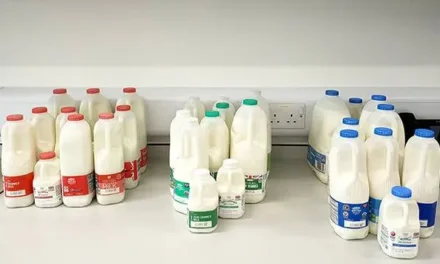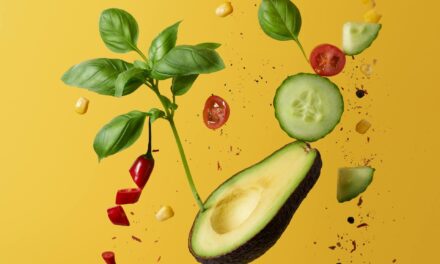We are all familiar with the dangers of having too much salt in our diet and how it contributes to high blood pressure, risk of stroke, and the development of cardiovascular disease.
In the UK we know we consume too much salt. Data from the 2018/2019 national diet and nutrition survey tells us that the average daily salt intake for adults in the UK is 8.4g (9.2g for men and 7.6g for women) whilst the Scientific Advisory Committee on Nutrition (SACN) advises us to have no more than 6g per day. This equates to approximately 1 teaspoon.
Three in 10 adults in England have high blood pressure and high blood pressure is the third largest risk factor for premature death and disability. Often, we can be consuming too much salt before we even pick up the salt shaker at the table. Interestingly, the biggest sources of salt in our diet are bread, breakfast cereals, meat products and ready meals. Whilst government reformulation schemes over the past 20 years have helped to reduce the salt content of some popular food categories, many foods we purchase are still high in salt.
This can be confusing and difficult to navigate. When reading food labels at the supermarket, look out for the nutrition information displayed on the front of the pack. These follow a traffic light system with the green colour indicating the product is low in salt, orange colour indicating medium amounts of salt and red meaning the product is high in salt. This will help you get an idea of the amounts of foods with low, medium and high (green, amber and red) salt contents that you are consuming. You can also compare similar food products to see if there is a lower salt alternative you could purchase instead.

Source: Reading labels – Action on Salt
But what else can you do to lower your and your family’s salt intake?
Herbs and spices are a great way to infuse food with delicious flavour and as a bonus they can also be beneficial for our health. Diets such as the Mediterranean diet which is abundant in herbs and spices have been linked to reduced inflammation, oxidative stress and presence of chronic diseases. Specific herbs have been shown to have a variety of beneficial health effects (1) including a role in reducing blood pressure (cinnamon and garlic); managing blood glucose (chilli, cinnamon, fenugreek, garlic, ginger, rosemary); reducing risk of developing cardiovascular disease (black pepper, chilli, fenugreek, garlic, ginger, rosemary, turmeric); reducing inflammation (black pepper, chilli, cinnamon, garlic, ginger, rosemary, turmeric); weight control (black pepper, chilli, fenugreek, ginger, turmeric) and neuroprotection (cinnamon, turmeric). Get to know your herbs and spices and learn which foods they pair best with, with this useful guide from the British Heart Foundation Easy ways to cook better: Salt alternatives – BHF
Not only do herbs and spices pack a flavour punch but they can also help you reduce your salt intake. Try replacing salt with a mixture of Mediterranean herbs (garlic, oregano, basil and black pepper) in your tomato sauces, with a Mexican rub (chilli, paprika, garlic and cumin) on your steak or get creative in the kitchen and come up with your own mixtures!
- Jiang TA. Health Benefits of Culinary Herbs and Spices. J AOAC Int. 2019 Mar 1;102(2):395-411. doi: 10.5740/jaoacint.18-0418. Epub 2019 Jan 16. PMID: 30651162.





